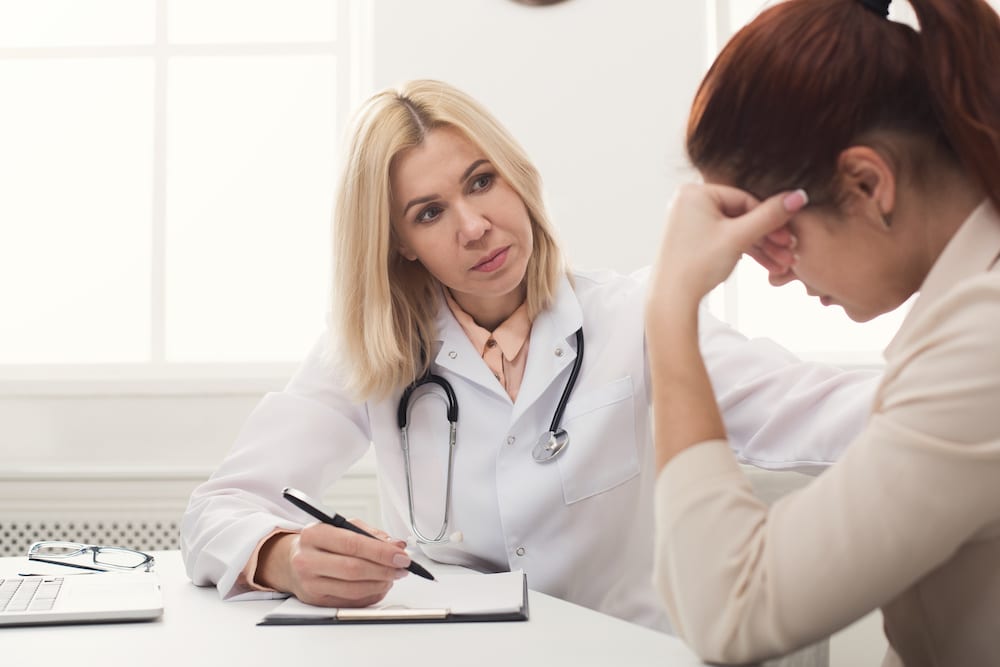Updated on 06/04/24
Recovery is hard work. It requires a daily commitment to your future and happiness. After working diligently, relapse can be disappointing and embarrassing. While there is always the risk of relapse, there are ways to prevent it. Several signs indicate a relapse may happen soon. However, following prevention strategies is sometimes not done correctly. Understanding relapse in its entirety can help prevent it and get a person help when needed.
Warning Signs of Relapse
Relapse does not happen randomly. Some signs and symptoms can hint at a person approaching a relapse in their recovery. By recognizing these signs, the relapse can be caught before it happens, and treatment can be used to help avoid it altogether. Common warning signs of relapse include:
- Missing aftercare appointments (therapy, support groups, other sober activities)
- Expressing less interest in once enjoyable activities
- Symptoms of anxiety or depression
- Feelings of hopelessness or worthlessness
- Disbelief in the ability to stay sober
- Overconfidence in recovery
- Changes in daily routine
- Trouble sleeping
- Appetite changes
- Feeling stressed
- Isolation
- Glamorizing drug or alcohol use
- Being around those who use drugs or alcohol
Recognizing and identifying these signs early on can be lifesaving and help a sober person avoid relapse.
Causes of Relapse
Depending on the circumstances, there can be multiple reasons for relapse. However, there are general causes that occur:
Overconfidence in Recovery
Some may experience a feeling of overconfidence in their recovery after leaving treatment. It is easy to leave rehab and believe that you are healed and no longer need aftercare appointments or other help. You have the coping mechanisms, you went to treatment—what more is there to do? Overconfident beliefs after a treatment stay are most often false. Over time, it can become easier to fall back into old habits without people holding you accountable and practicing your coping skills. Taking a step back and realizing that you need help in recovery is essential to maintaining sobriety.
Pressure & Stress
Stress is a common trigger for relapse. Stress can cause you to crave relief, leading you to want to use drugs or drink alcohol again. The pressure you feel can originate from negative and positive situations, depending on the circumstances. Stress cannot be entirely removed from your life, but there are ways to cope with it. If you are struggling with stress during recovery, it is crucial to discuss these feelings with your sponsor, therapist, sober friends or at a support group to receive help with management.
Depression
Symptoms of depression can be a common sign of impending relapse. Symptoms may leave people feeling unmotivated, worthless, as if they have no purpose, and cause difficulties with sleeping, appetite, energy and motivation. As depression symptoms continue, someone may have thought of using them to help alleviate these typical symptoms.
Complacency in Recovery
Complacency in recovery may mean you have ceased to continue the work that has helped you stay sober. Stopping your recovery journey may cause feelings of hopelessness, as you are no longer dealing with the stresses of staying sober. Continuing recovery on a daily basis is necessary, even when the use of substances has stopped. The feelings accompanied by growing complacent may lead a person to seek out drugs or alcohol. Individuals who feel complacent in their recovery may also feel they do not have a substance use disorder anymore. Believing there will be no negative consequences from use can lead to a relapse.
Getting Back on Track After Relapse
Relapse does not negate previous hard work and progress. You are still the person that went through treatment and got sober. You did all the hard work. There are ways to continue in recovery after a relapse. Several ways to help get back on track include:
- Reaching out for help from your therapist
- Going to a support group
- Identifying your triggers and avoiding them
- Identifying what led up to your relapse
- Setting boundaries
- Creating a relapse prevention plan
- Practicing self-care
Above all, you should make your treatment and sobriety a priority. Don’t give up because of one mistake. The more you use, the harder it will be to get back on track. Reach out and accomplish what needs to be done to get sober again.
In recovery, there is always the possibility of relapse, but it is not inevitable. There are ways to prevent relapse and notice the warning signs of someone approaching a potential relapse. At Pinelands Recovery Center of Medford, we never want our patients or alumni to feel alone. Relapse does not have to slow you down or diminish your recovery progress. Together, we can help you prevent relapse or help you get back to recovery after a relapse episode. Known as one of the best addiction treatment facilities in New Jersey, we can assure you that you will feel comfortable and ready to get back to sobriety. Contact us today at (877) 557-5372 for more information.
